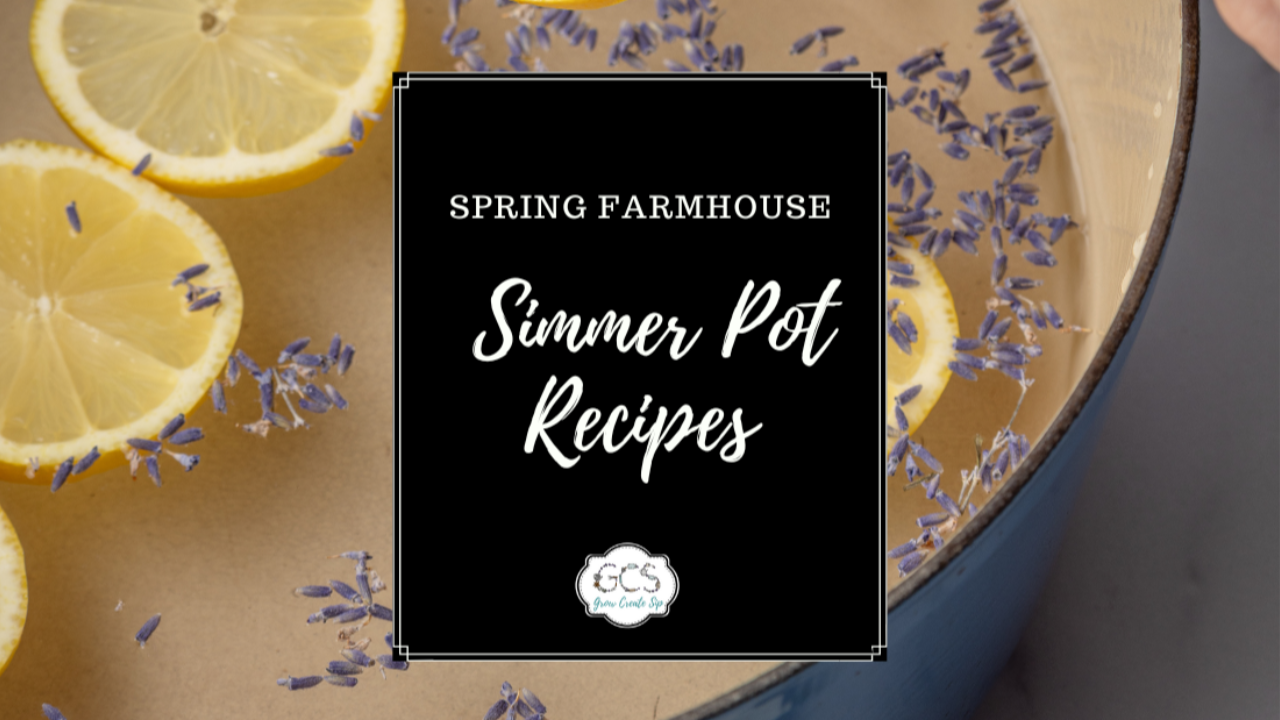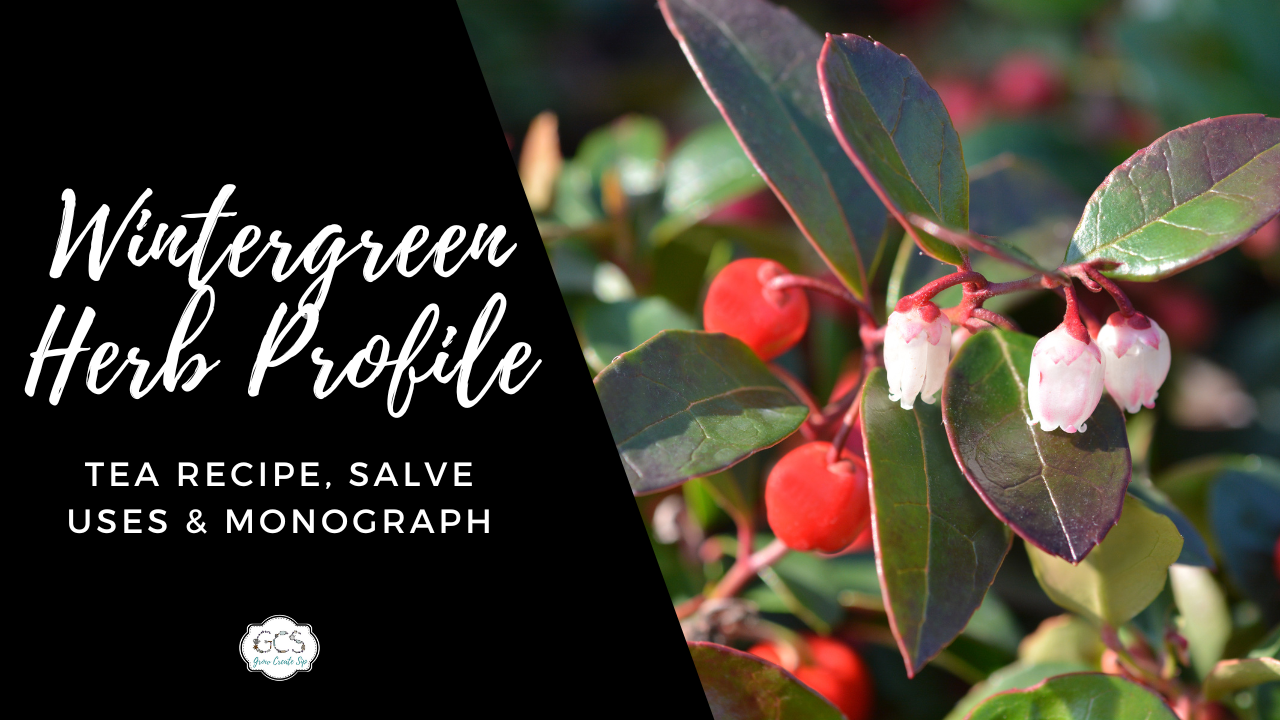Acid Reflux Remedies and Fennel Tea for Indigestion
May 09, 2023
Tummy troubles got you down? Always popping chalky ant-acids or spending WAY too much on probiotics? Tired of indigestion every time you eat?
Acid reflux and indigestion along with other digestive woes are really a hindrance to daily life. It's time to add some natural remedies to your daily regime that can ease your symptoms and support your overall gut health. After all 70-80% of our immune system is located in the digestive tract. If our guts are not healthy neither are we!
While fennel tea is a popular natural remedy for digestive issues, there are many other medicinal herbs that can also promote digestive health and ease symptoms of acid reflux and indigestion. Let's dive into the wonderful list of herbs that can support acid reflux, GERD and indigestion, including some of my favorites from Aryuvedic medicine.
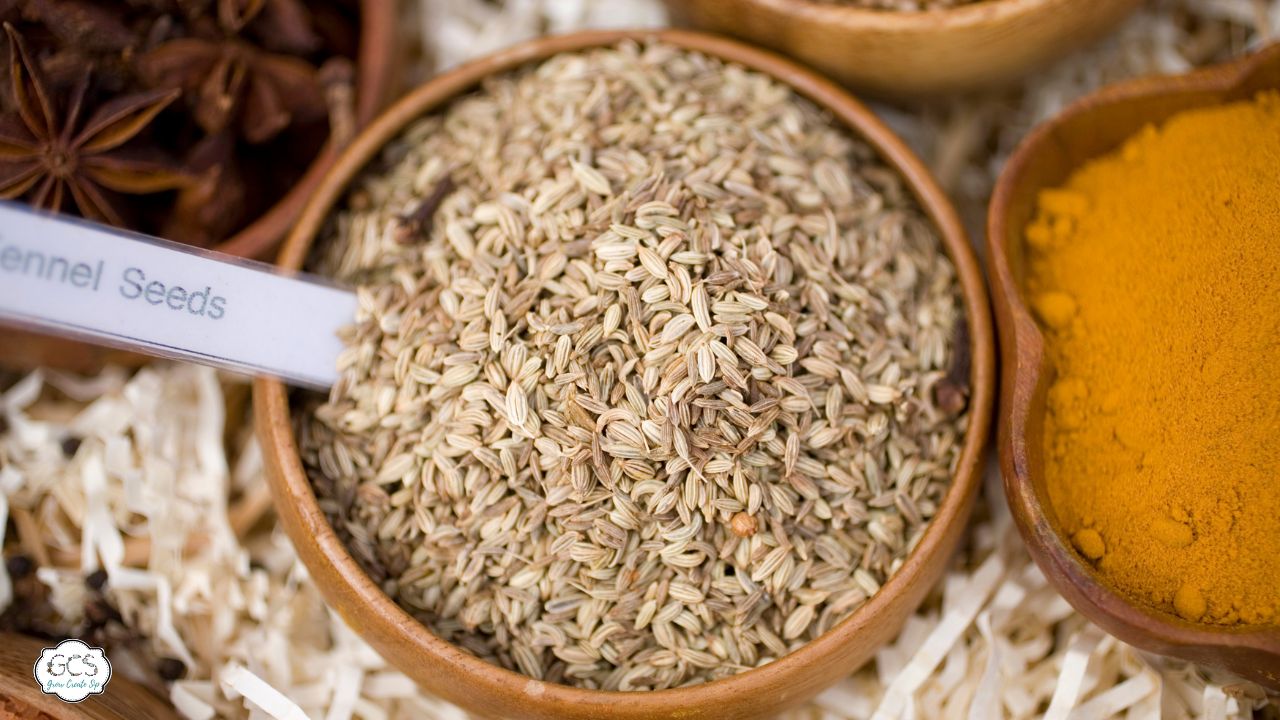
The Legal Stuff
The contents of this blog are made available via St. Fiacre's Farm LLC through Grow Create Sip and Farmhouse Teas and are for informational purposes only. This blog does not constitute medical advice; the content is not intended to be a substitute for professional medical advice, diagnosis, or treatment. Always seek the advice of a qualified healthcare provider with any questions you may have regarding a medical condition. If you think you may be suffering from any medical condition, you should seek immediate medical attention. You should never delay seeking medical advice disregard medical advice or discontinue medical treatment because of information provided by St. Fiacre's Farm, Farmhouse Teas or Grow Create Sip. Reliance on any information provided by this webinar is solely your own risk. St. Fiacre's Farm LLC (along with Farmhouse Teas and Grow Create Sip) is a participant in the Amazon Services LLC Associates Program, an affiliate program designed to provide a means for our team to earn fees for recommending our favorite products! Along with additional affiliate programs not associated with Amazon. We may earn a small commission, at no additional cost to you, should you purchase an item after clicking one of our links. Thanks for supporting us!
Understanding Acid Reflux, GERD, and Indigestion
Acid reflux, Gastroesophageal reflux disease (GERD), and indigestion are all terms often used as one and the same. But they have different meanings. Let's define these terms before we dive into which natural remedies would support you best.
What Is Acid Reflux?
Acid reflux is a problem that affects a lot of people all over the world. It happens when acid from the stomach goes up into the esophagus. This makes the chest and throat feel like they are on fire.
Common symptoms include the following:
- Serious heartburn
- Chest pain
- Regurgitation or reflux
- Difficulty swallowing
Acid reflux can be caused by a variety of factors, including the following eating, drinking and life style choices such as:
- Eating large meals or overeating
- Eating too quickly
- Consuming spicy, greasy, or acidic foods. For example, drinking herbal teas instead of coffee, which contains acid.
- Drinking carbonated beverages, coffee, or alcohol
- Eating late at night or before bedtime
- Smoking or using tobacco products
- Being overweight or obese
- Wearing tight clothing that puts pressure on the stomach
- Lying down or bending over after eating
- Stress and lack of sleep
Underlying Health Conditions behind acid reflux may be hiatal hernia, gastroparesis (delayed stomach emptying), peptic ulcers, esophageal motility disorders, and scleroderma (a connective tissue disease). Also, women who are pregnant may also experience higher rates of acid reflux.
What Is GERD?
GERD stands for Gastroesophageal Reflux Disease. It is a chronic condition in which stomach acid or bile flows back into the esophagus, causing irritation, inflammation, and damage to the lining of the esophagus. GERD is a more serious form of acid reflux.
Some common symptoms of GERD include the following:
- Severe heartburn
- Acid regurgitation
- Chest pain
- Difficulty swallowing
- A chronic cough
If left untreated, GERD can lead to serious complications such as the following:
- Esophagitis (inflammation of the esophagus)
- Barrett's esophagus (a precancerous condition)
- Esophageal cancer
The severity of GERD varies from person to person, and treatment options can range from lifestyle changes to medication or surgery, depending on the condition's seriousness.
Lifestyle changes can help reduce symptoms of GERD such as the following:
- Avoiding trigger foods
- Eating smaller meals
- Not lying down immediately after eating
GERD can lead to serious complications left untreated, but adding herbs and life style changes to your daily habit can support the overall digestive system naturally.
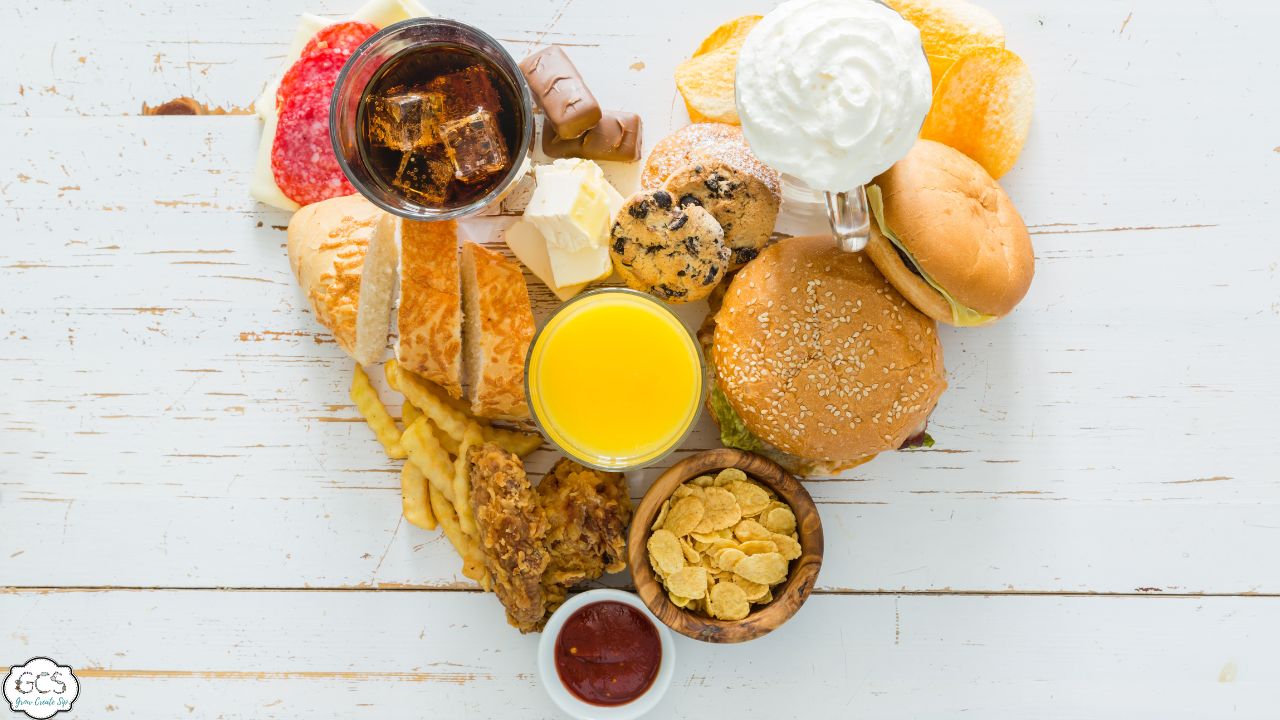
What Is Indigestion Discomfort?
Indigestion, on the other hand, refers to discomfort or pain in your upper abdomen and is much less serious than GERD. Usually indigestion is a temporary discomfort. It is often caused by the following:
- Eating too much
- Eating too quickly
- Consuming fatty or spicy foods
- Stress during meals
A Different Perspective on Acid Reflux, GERD, and Indigestion
Many from the Paleo line of thought and diet, such as those teaching a Gut Psychology Syndrome (GAPS), Traditional Foods (Nourishing Traditions) and Autoimmune Protocol (AIP) suggest that indigestion can be caused from too much or too little acid.
That too much acid in the diet can cause the body to stop providing the needed acid to digest the food.
Ayurveda, one of the oldest forms of herbalism, agrees with this perspective. When we eat too many acidic foods our digestive system gets overloaded with acid.
The body thinks there is enough acid to digest the food and so the body stops producing acid. Eventually leaving us with not enough acid to digest our food.
Here is a great home test you can apply to know whether you have too much or too little acid.
- If you believe you have too much acid, in the case of indigestion or acid reflux, add 1/2 tsp of baking soda to 8 ounces of water. Stir until dissolved and drink. If symptoms subside you may have too much acid.
- If you feel you have too little acid try 1 tablespoon of apple cider vinegar in 8 oz of water. Drink before a meal and if you feel your digestion improve then you may not have enough acid.
According to Ayurveda, an imbalance in the digestive system causes toxins to build up in the digestive tract. Spicy, oily, or acidic foods, stress, and lack of sleep can increase acid reflux symptoms.
To lessen this imbalance Ayurveda recommends cooling, digestive-soothing foods like coconut, cucumber, and fennel. Fennel and licorice teas can also help soothe and improve digestion.
Gentle exercise, stretching and quiet prayer time, as well as avoiding cigarettes and alcohol, in addition to dietary changes are all excellent life style adjustments that will aide in supporting the reduction of acid reflux symptoms.
Easy to digest soups and stews are recommended to enhance digestion and relieve indigestion.
Ginger or peppermint tea before and during meals helps digestion and may prevent indigestion as well. As well as drinking a glass of room temperature water thirty minutes before each meal.

Photo By Kayla Joy Creative
The Benefits of Herbal Teas
Drinking tea made with herbs has been used for its health benefits for centuries as indigestion remedies. They are an excellent way to improve your overall health and help support and balance your overall health.
Unlike traditional teas, herbal teas do not use the Camellia sinensis plant. They do not contain caffeine. Instead, they are made from various parts of plants, such as leaves, flowers, roots, and seeds.
Herbal teas offer a wide range of health benefits, including the following:
- Improved digestion
- Improved relaxation
- Immune support
- Reduced inflammation
Herbal teas are also an excellent way to hydrate the body and provide a natural source of vitamins and minerals. In addition, many herbal teas can serve as a prebiotic, food for probiotics, and in turn feed good gut health.
Natural Herbal Teas for Acid Reflux and Indigestion
Ready to find a tea you love to sip on while at the same time easing your symptoms of acid reflux and indigestion. Let's take a look at some of the options!
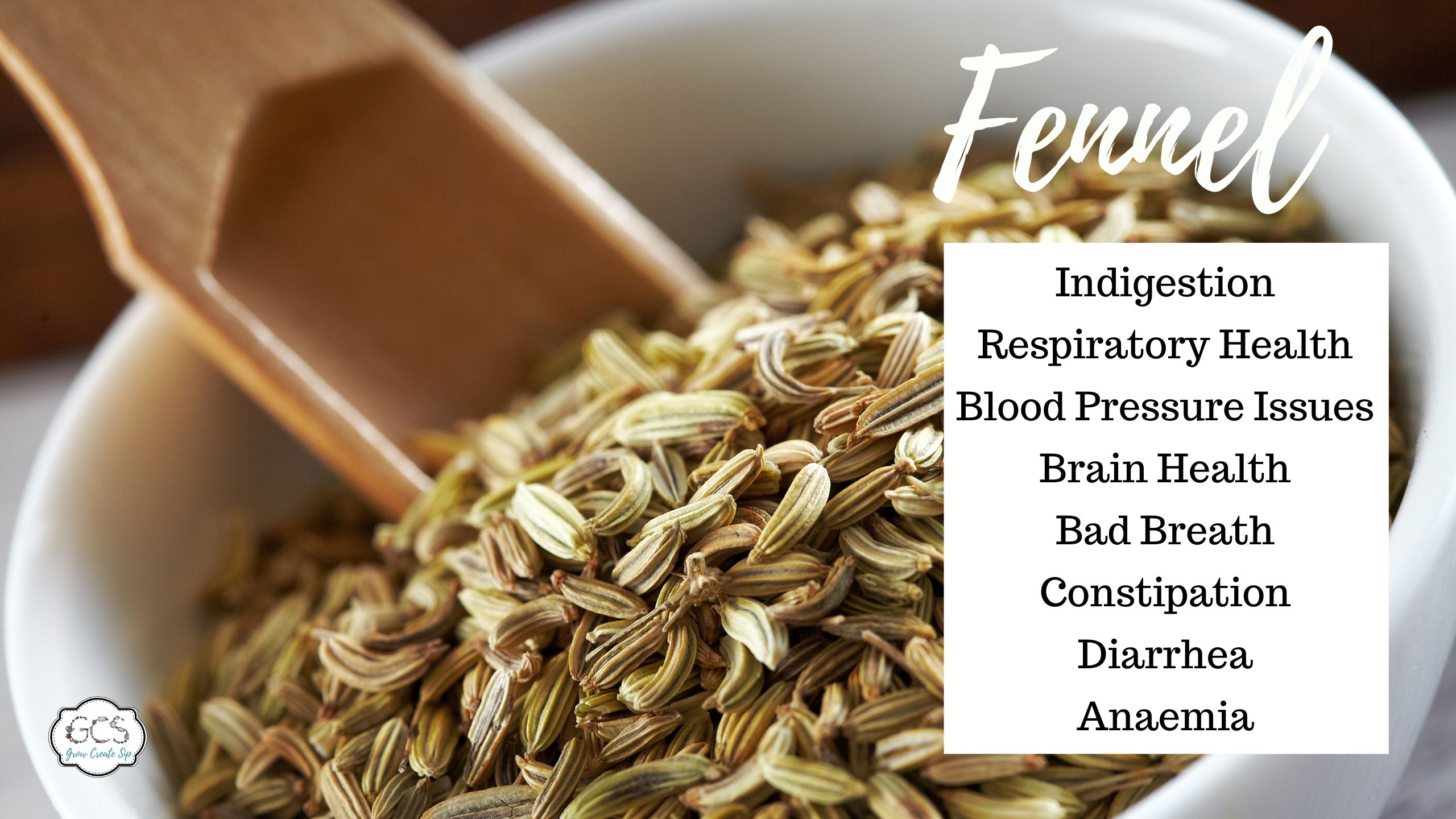
Fennel Tea
Fennel tea is known for its ability to alleviate bloating and digestive discomfort, especially in Ayurvedic and traditional medicine practices. Fennel tea is a natural diuretic. Fennel contains:
- Promotes Digestive Strength
- Anti-spasmodic assisting in pain relief
- Calms Nerves
- Carminative Properties
- Stimulant (moves the digestive system)
These constituents help to flush out extra water acting as a diuretic and minimize water retention, another cause of bloating.
Also, fennel's carminative qualities help avoid gas in the digestive tract, which can cause bloating. Fennel tea relaxes the digestive tract muscles making it a natural and effective remedy for bloating and digestive discomfort.
However, fennel herbal seed may interact with blood-thinning medications and estrogen supplements. Please take those into consideration and know that while herbal remedies are very safe and effective they still may have contrindications. We always recommend diving deep into each herb before use, using our free Monograph Pages to keep you organized.
Steep 1 tsp of fennel seeds in 6-8 oz of boiling water for 5-7 minutes. Strain and enjoy!
Fennel seeds may also be chewed after a meal for a quick herbal after meal support!
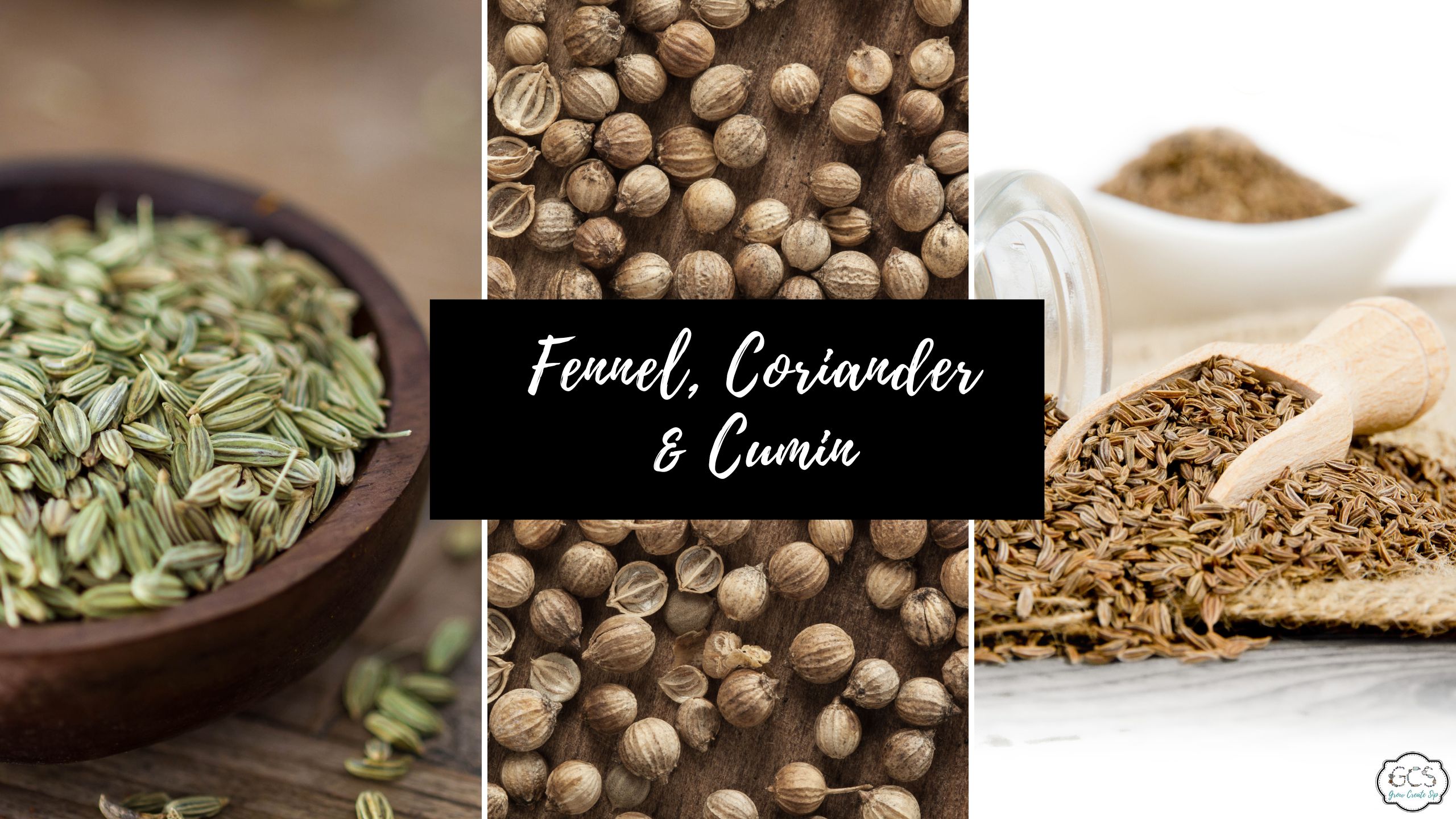
Cumin Coriander Fennel Tea
Cumin, coriander, and fennel seed tea is a popular Ayurvedic remedy for digestive issues. This tea works by stimulating digestion and reducing inflammation in the digestive system.
To make Cumin Coriander Fennel Tea:
- Combine equal parts of loose cumin, coriander, and fennel seeds
- Steep 1 tsp of this herbal blend in 6-8 of hot water for 5-10 minutes
- Strain and enjoy!
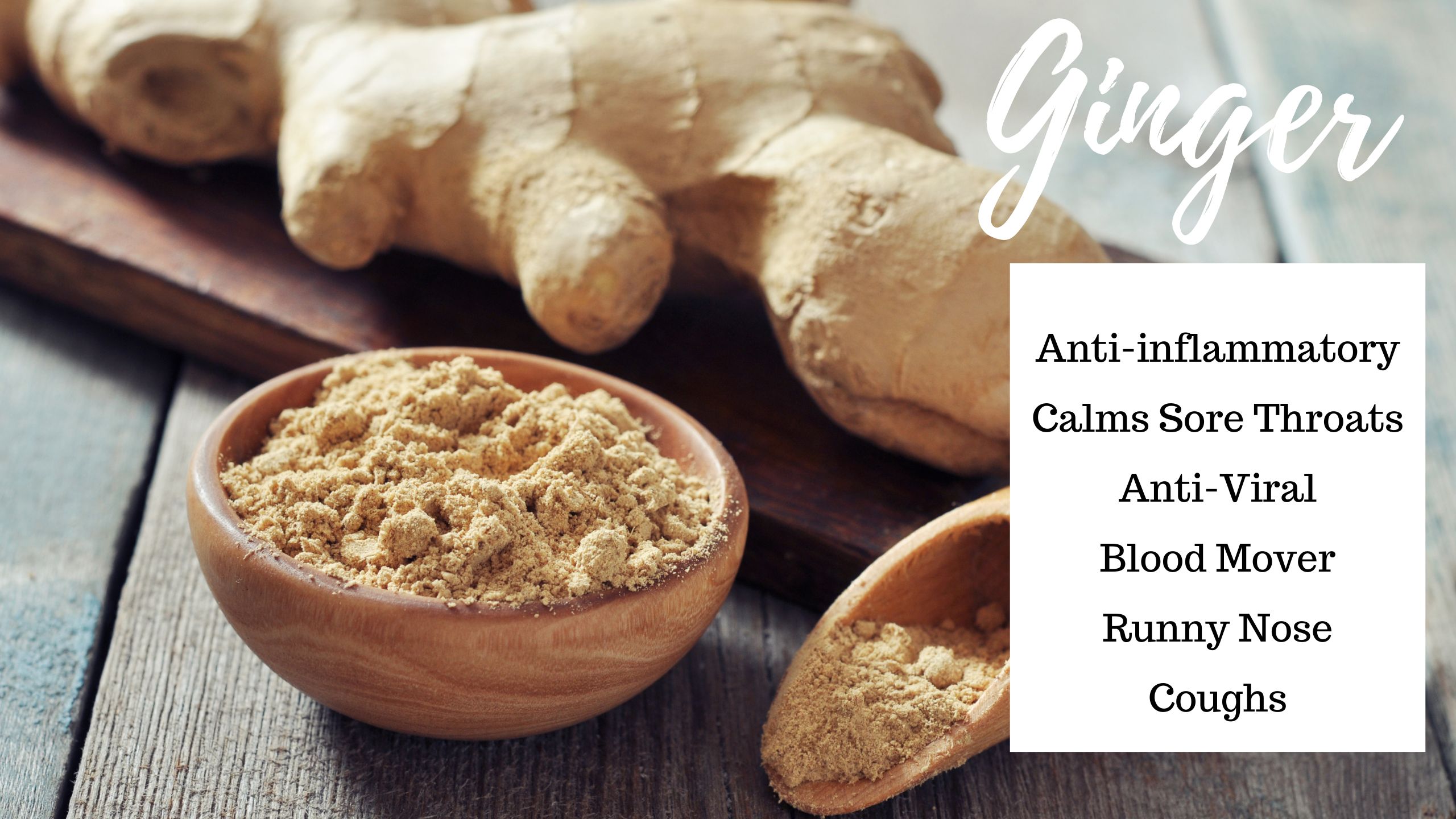
Ginger Tea
Another medicinal herb that can be helpful for indigestion is ginger. Ginger has anti-inflammatory properties that can help to reduce inflammation in the digestive system.
It is an effective natural remedy for bloating and other stomach issues. A good combination for the digestive system is fennel ginger tea.
Additionally, ginger can help to speed up the digestive process, which can prevent heartburn and acid reflux from occurring.
If you want to lose weight, ginger and fennel tea for weight loss are a good combination. This is because it speeds up your metabolism and makes your body burn more energy. Simply steep a small number of fresh ginger slices in hot water for a few minutes.
Ginger may interact with blood-thinning medications and some anti-diabetic drugs, so be cautious when using it.
While Chai tea is my favorite way to consume ginger, you can also make a quick cup of ginger tea:
- Steep 1 tsp of dried ginger or 2 tsp of fresh chopped ginger in 6-8 oz of hot boiling water for 5-7 minutes
- Strain herbs and enjoy with a spot of honey
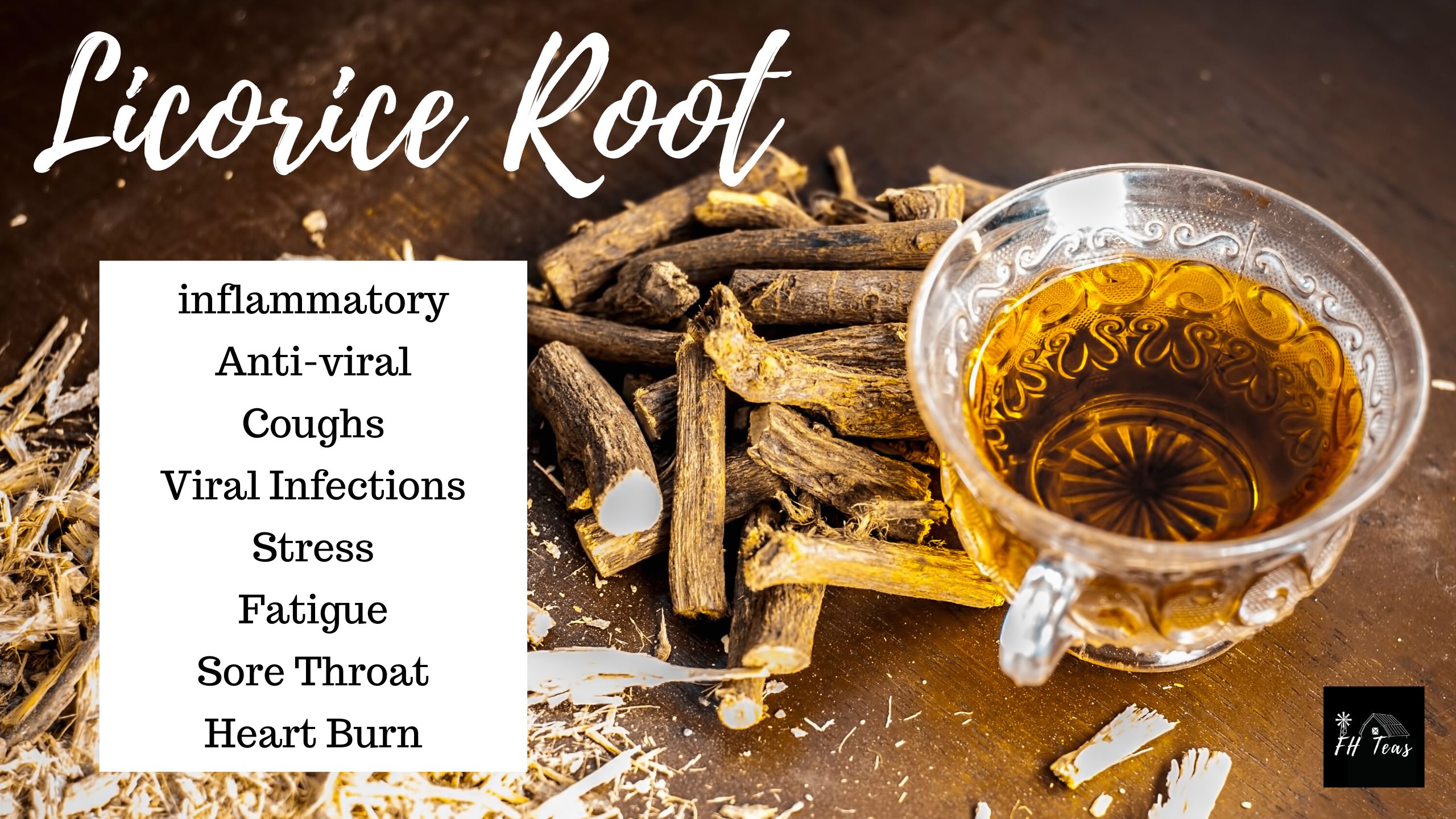
Licorice Root Tea
Licorice root has anti-inflammatory properties that can help to reduce inflammation in the digestive system. Again, it is effective in alleviating bloating and other stomach issues.
Additionally, licorice root can help soothe the lining of the stomach and intestines, reducing symptoms of heartburn and acid reflux. But it's important to know that licorice root can affect how some medicines function, so it's best to check before using it as a remedy for indigestion. Especially if you are on blood thinning or heart medications.
Steep a 1 teaspoon of dried licorice root in 8 oz of hot water for 5-7 minutes. Licorice root is naturally sweet and many who do not like herbal teas tend to enjoy licorice. The flavor one expects from licorice is not actually the typical jelly bean flavor but naturally sweeter without the anise flavor.

Peppermint Tea
Peppermint has antispasmodic properties. These properties can help relax the digestive system muscles, making it easier for food to pass through.
Additionally, peppermint can help reduce inflammation in the stomach and intestines. As a result, it alleviates symptoms of bloating and gas. Peppermint is also a catalyst herb helping to move the digestive system along and aide in its normal functioning. Peppermint has a cooling effect which is also helpful with the heat that tends to come with extra acid in the digestive system.
However, peppermint oil may interact with medications used for heartburn, acid reflux, and diabetes and so we recommend sticking with a refreshing cup of peppermint tea.
Steep 1 tsp of peppermint leaf to 8 oz of hot boiling water for 4-5 minutes. Add a teaspoon of raw honey if you like and enjoy!
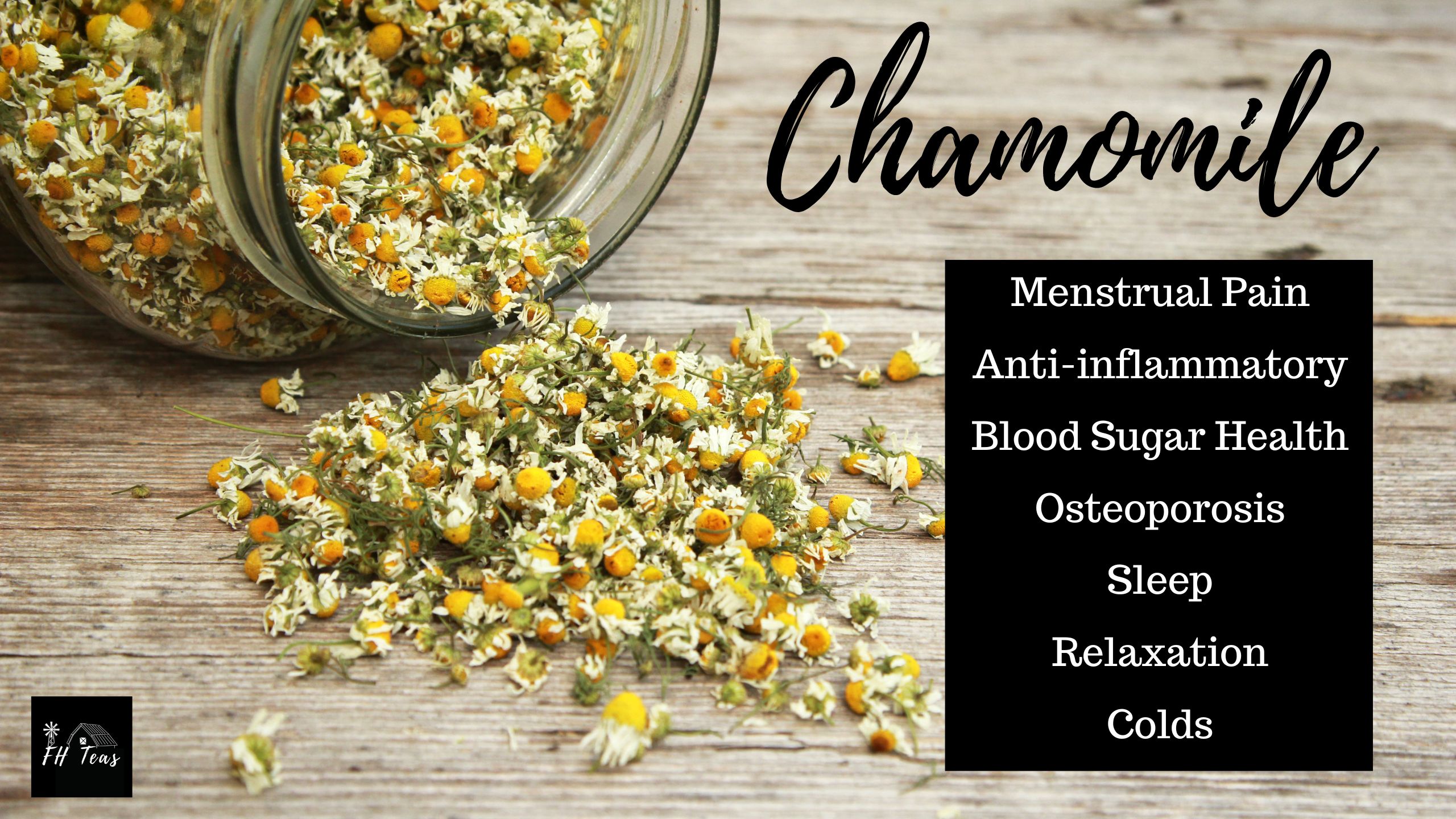
Chamomile Tea
Another popular herbal remedy for indigestion is chamomile. Chamomile has been used for centuries as a natural remedy for various digestive issues. For example, the following:
- Bloating of the stomach
- Digestive Gas
- Stomach ulcers
- Upset Stomach
This herb works by reducing inflammation in the digestive system and soothing the muscles in the stomach. As a result, it makes it easier for food to pass through the digestive system.
Also renowned for its relaxing effects is chamomile tea. It can help ease anxiety and stress that may contribute to digestive issues. Understanding that chamomile may interact with blood-thinning medications is a must as well as noting its sedative qualities. While chamomile is a gentle sedative it can cause drowsiness especially in children.
Steep 1 tsp of chamomile loose leaf tea in 8 oz of hot boiling water for 3-5 minutes, sweeten to taste and enjoy before bedtime or after a meal.
Herbal Tea Supports Better Digestion
Acid reflux, GERD and indigestion are uncomfortable, inconvenient and can pose a risk to your long term health. Our digestive health is the key factor, if not the most important factor to overall health and gives us signs of what is happening under the hood of our body. Ignoring these symptoms can be dangerous and we should see these warning signs as opportunities to give our bodies a tune up and the support that it needs to bring it back in balance. In return we will be happier over all and capable of so much more if we are feeling well.
Herbal teas are a wonderful addition to daily regimes to support better digestion. From simple teas like fennel, peppermint, coriander, ginger and others to adding an herbal chai shake to one of our daily meals. Supporting our digestion with herbs doesn't need to be complicated or expensive and it can certainly be natural giving us more security regarding what we are putting in our bodies.
Dive deeper into blending your own wellness teas with our free tea blending workshop here. I'd love to know though, what herbal remedies have you tried to aide with your acid reflux, GERD or indigestion? Would you share in the comments below and together we can help each other live our lives with more comfort and joy.
Additional Medicinal Tea Blends ...
- Can Tea Help you Loose Weight?
- How & Why to Make Mushroom Tea
- Best Tea for a Cold
- Calendula Tea Benefits
- Benefits of Rose Hip Tea & Recipe
- Best Tea for Joint Pain












